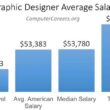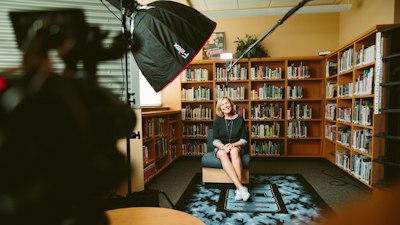Welcome to “Conquer the Interview: Winning Strategies for Job Seekers,” your comprehensive guide to mastering the art of the job interview and taking your career to new heights. Whether you’re a seasoned professional or stepping into the workforce for the first time, the prospect of an interview can be daunting. In this blog, we’ll delve into the most effective techniques to not only tackle common interview questions but also to present your experiences with confidence using the STAR method. Furthermore, we’ll explore the subtle art of asking insightful questions to create a dynamic conversation with your interviewer. Finally, we will provide you with essential tips on following up after the interview and crucial factors to consider before accepting that all-important job offer. Armed with these strategic insights, you’ll stand out to potential employers as a candidate who is not only prepared but poised for success. Let’s get started on your journey to interview triumph!Ace your next job interview with expert tips on answering common questions, using the STAR method, asking the right questions, following up, and offer acceptance.
Winning Job Interview Strategies
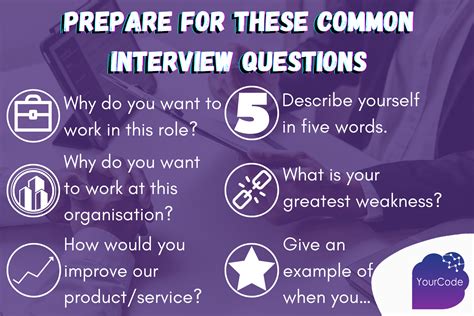
Ace your next job interview by being well-prepared to tackle Common Interview Questions and How to Answer Them. Mastery in responding to these ubiquitous questions can often be the difference between being in the running and landing the job. Each interview invariably circles back to a few familiar inquiries, such as describing your strengths, addressing your weaknesses, or explaining why you should be the candidate of choice. Thorough preparation armed with concise, yet comprehensive responses will foreground your ability to handle the position in question, showcasing your professional acumen and readiness to take on the responsibilities.
When discussing your strengths, it is pivotal to align them with the demands of the job at hand, effectively demonstrating that you not only possess the required attributes but that you are proficient in applying them in a practical context. This is crucial as part of your winning job interview strategy. Conversely, when asked about weaknesses, it’s a chance to present them as areas of potential growth, illustrating your self-awareness and commitment to professional development. Your approach to these questions reflects not only your qualifications but also how you perceive and present yourself, which is often as significant as the technical qualifications for the job. Thus, deploying interview strategies for job seekers like this can mark the thin line between success and disappointment in your job quest.
Highlighting Your Skills with STAR Method Responses
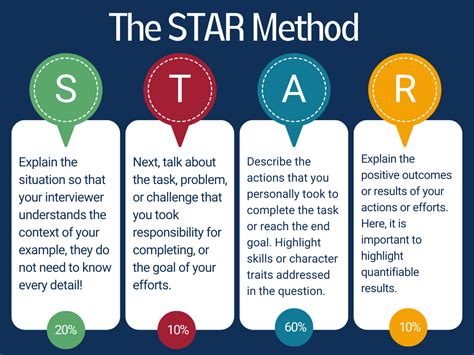
When embarking on the journey to acing your next interview, comprehensively understanding the STAR method is pivotal for illuminating your skills in front of potential employers. This technique, which stands for Situation, Task, Action, and Result, is a structured manner of responding to behavioral interview questions that poignantly articulate how you have handled previous work experiences or challenges. Adopting the STAR method is not just a fad; it’s a proven strategy that can be the linchpin in your quest for a winning job interview, as it shows not just what you did, but how effectively you did it and the impact it made.
Crafting your response with the STAR framework empowers you to bring a narrative to life, ensuring that your feats are not just listed, but are showcased through a compelling tale of professional triumph. It assists interview strategies for job seekers by providing a digestible and memorable format for interviewers to grasp the depth of your abilities. For instance, when asked about a time you led a team, articulating the Situation sets the stage, describing the Task clarifies your objective, detailing the Action reveals your approach, and sharing the Results highlights the outcome – with this strategy, your ability to deliver successful solutions shines through, engendering confidence in prospective employers that you are the candidate who will add value and drive results for their team.
Asking Insightful Questions: Engaging the Interviewer
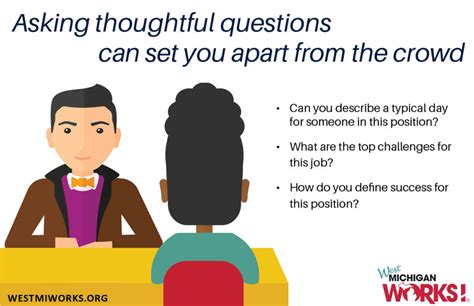
Mastering the art of inquiry during a job interview can serve as a powerful tool, transforming a one-sided assessment into a dynamic conversation. Indeed, asking insightful questions not only showcases your keen interest in the role but also positions you as an applicant with foresight and critical thinking capabilities. Such engagement is crucial, as it reflects an active pursuit of the position and a desire to integrate seamlessly into the company’s culture and workflow.
When formulating your questions, consider the dual emphasis of value: what can you bring to the company, and what can the company offer you for professional growth? By strategically incorporating interview strategies for job seekers, you can pivot the discussion to illustrate your alignment with the company’s objectives and discern how the role aligns with your career trajectory. Employers often remember the candidate who concluded the winning job interview with thought-provoking questions as much as the one who skillfully navigated their set queries.
Following Up After the Interview: The Do’s and Don’ts

Once the significant hurdle of the winning job interview is over, the way a candidate performs the follow-up can be just as pivotal in landing the role. Understanding the do’s and don’ts of following up after an interview is a critical component of interview strategies for job seekers. It’s essential not to inundate your potential employer with incessant communication, yet being assertive and professional can demonstrate your enthusiasm and commitment to the role.
Key aspects of following up include sending a personalized thank-you email, reinforcing your interest in the position and reminding the employer of your unique qualifications without appearing overly eager or desperate. Remember to be respectful of the hiring manager’s time and process; inquire about their timeline for decision-making and express your willingness to provide further information if required. In this delicate stage, a job seeker’s diligence and tact can make a lasting positive impression, solidifying their candidacy in the eyes of the employer.
Accepting an Offer: What to Consider Before Saying Yes

Accepting a job offer can be a momentous occasion in one’s career journey, but before you eagerly say yes, it’s crucial to take a reflective pause. Analyzing the offer in its entirety is not simply about the salary; it involves a careful consideration of how the company culture, the role-specific responsibilities, and the long-term career opportunities align with your professional goals and personal values. Deliberate contemplation will ensure you make a decision that fosters professional growth and satisfaction rather than a hasty leap that might lead to discontent.
As a job seeker, when you’re on the cusp of potentially winning a job interview, and an offer is extended, balance the excitement with a strategic approach. Remember that negotiation is a part of the acceptance process, and employing interview strategies doesn’t end with the handshake. Potential employers expect candidates to have questions and may respect counter-offers; after all, it shows enthusiasm and engagement with the position. So before you affix your signature to that dotted line, pause to consider if the offer truly meets the vision you have for your career trajectory, and if it doesn’t, don’t be afraid to negotiate terms that would make you excited to say yes. This decisive moment is not just another step; it’s a leap towards your future success.
Frequently Asked Questions
What are some key preparations a candidate should make before an interview?
Candidates should research the company, understand the job role they’re applying for, practice common interview questions, and prepare questions to ask the interviewer. It’s also important to dress appropriately and plan the route to the interview location to ensure punctuality.
How can a job seeker make a strong first impression in an interview?
A job seeker can make a strong first impression by arriving on time, offering a firm handshake, maintaining good eye contact, and presenting a confident body language. It’s also vital to listen carefully and respond thoughtfully to questions presented by the interviewer.
Why is it important to ask questions during an interview?
Asking questions shows the interviewer that you are enthusiastic about the role and engaged in the conversation. It demonstrates your interest in the company and helps you gather information to determine if the job and the company culture are a good match for you.
Can you provide a strategy for answering difficult interview questions?
When faced with difficult questions, it’s beneficial to use the STAR method (Situation, Task, Action, Result) to structure your responses. This approach allows you to provide concrete examples and demonstrate how your skills and experiences make you a suitable candidate for the position.
What’s the importance of body language during an interview?
Body language is crucial because it communicates confidence and professionalism. Positive body language includes smiling, nodding to show understanding, maintaining good posture, and using hand gestures appropriately. Negative body language, such as slouching or fidgeting, can convey nervousness or disinterest.
How should a candidate handle salary negotiations in an interview?
A candidate should research industry salary standards before the interview to know their worth. If the topic arises, they should confidently express their salary expectations, as well as be open to discussing benefits and flexibility. It’s important to negotiate professionally and not to undersell oneself.
What is the best way to follow up after an interview?
The best way to follow up after an interview is to send a personalized thank-you email within 24 hours. Express appreciation for the opportunity, reiterate interest in the position, and briefly mention a specific topic discussed during the interview to reinforce a positive impression.

